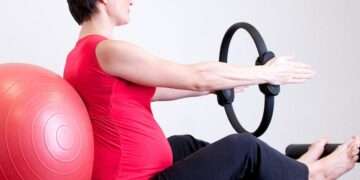
Managing everyday stress is essential for maintaining overall well-being. It is part of being human, and it can help motivate you to get things done. Even high it from serious illness, job loss, a death in the family, or a painful life event can be a natural part of life. You may feel down or anxious, and that’s normal, too, for a while.
Talk to your doctor if you feel down or anxious for more than several weeks or if it starts to interfere with your home or work life. Therapy, medication, and other strategies can help. In the meantime, there are things you can learn to help you manage before it gets to be too much.
What is stress?
Stress is the body’s natural defense against predators and danger. It causes the body to flood with hormones that prepare its systems to evade or confront danger. People commonly refer to this as the fight-or-flight mechanism. When humans face a challenge or threat, they have a partly physical response. The body activates resources that help people either stay and confront the challenge or get to safety as fast as possible.
The body produces larger quantities of the chemicals cortisol, epinephrine, and norepinephrine. These trigger the following physical reactions:
- increased blood pressure
- Heightened muscle preparedness
- sweating
- alertness
These factors all improve a person’s ability to respond to a potentially hazardous or challenging situation. Norepinephrine and epinephrine also cause a faster heart rate. Environmental factors that trigger this reaction are called stressors. Examples include noises, aggressive behavior, speeding cars, scary moments in movies, or even going out on a first date. Feelings of it tend to increase in tandem with the number of stressors.

Top 10 Tips to Manage Stress
These tips may help you keep it at bay:
1. Exercise
Working out regularly is one of the best ways to relax your body and mind. But you have to do it often for it to pay off. So how much should you exercise every week? Work up to 2 hours and 30 minutes of moderately intense exercise like brisk walks or 75 minutes of vigorous exercise like swimming laps, jogging, or other sports. Focus on setting fitness goals you can meet so you don’t give up. Most of all remember that doing any exercise is better than doing none at all.
Exercise also seems to help mood. Part of the reason may be that it stimulates your body to release some hormones like endorphins and endocannabinoids that help block pain, improve sleep, and sedate you. Some of them (endocannabinoids) may be responsible for the euphoric feeling, or “runner’s high,” that some people report after long runs.
People who exercise also tend to feel less anxious and more positive about themselves. When your body feels good, your mind often follows. Get a dose of stress relief with these exercises:
- Running
- Swimming
- Dancing
- Cycling
- Aerobics
If you don’t have the time for a formal exercise program, you can still find ways to move throughout your day. Try these tips:
- Bike instead of driving to the store.
- Use the stairs instead of the elevator.
- Park as far as you can from the door.
- Hand-wash your car.
- Clean your house.
- Walk during your lunch break.
2. Relax Your Muscles
When you’re stressed, your muscles get tense. You can help loosen them up on your own and refresh your body by:
- Stretching
- Enjoying a massage
- Taking a hot bath or shower
- Getting a good night’s sleep
3. Deep Breathing
Stopping and taking a few deep breaths can take the pressure off you right away. When you practice deep breathing, you turn on your body’s natural ability to relax. This creates a state of deep rest that can change how your body responds to stress. It sends more oxygen to your brain and calms the part of your nervous system that handles your ability to relax.
Try belly breathing. Get comfortable, close your eyes, and place one hand on your stomach and the other on your chest. Take a deep breath through your nose. You should feel your belly rise more than your chest. Now, exhale through your nose and pay close attention to how your body relaxes.
You will be surprised how much better you feel once you get good at it. Just follow these 5 steps:
- Sit in a comfortable position with your hands in your lap and your feet on the floor. Or you can lie down.
- Close your eyes.
- Imagine yourself in a relaxing place. It can be on the beach, in a beautiful field of grass, or anywhere that gives you a peaceful feeling.
- Slowly take deep breaths in and out.
- Do this for 5 to 10 minutes at a time.
4. Eat Well
Eating a regular, well-balanced diet will help you feel better in general. It may also help control your moods. Your meals should be full of vegetables, fruit, whole grains, and lean protein for energy. And don’t skip any. It’s not good for you and can put you in a bad mood, which can increase your stress.
5. Slow Down
Modern life is so busy, and sometimes we just need to slow down and chill out. Look at your life and find small ways you can do that. For example:
- Set your watch 5 to 10 minutes ahead. That way you’ll get places a little early and avoid the stress of being late.
- When you’re driving on the highway, switch to the slow lane so you can avoid road rage.
- Break down big jobs into smaller ones. For example, don’t try to answer all 100 emails if you don’t have to — just answer a few of them.
6. Take a Break
You need to plan on some real downtime to give your mind time off from stress. If you’re a person who likes to set goals, this may be hard for you at first. But stick with it and you’ll look forward to these moments. Restful things you can do include:
- Meditation
- Yoga
- Tai chi
- Prayer
- Listening to your favorite music
- Spending time in nature
7. Make Time for Hobbies
You need to set aside time for things you enjoy. Try to do something every day that makes you feel good, and it will help relieve your stress. It doesn’t have to be a ton of time; even 15 to 20 minutes will do. Relaxing hobbies include things like:
- Reading
- Knitting
- Doing an art project
- Playing golf
- Watching a movie
- Doing puzzles
- Playing cards and board games.
8. Talk About Your Problems
If things are bothering you, talking about them can help lower your stress. You can talk to family members, friends, a trusted clergyman, your doctor, or a therapist. You can also talk to yourself. It’s called self-talk, and we all do it. But for self-talk to help reduce stress, you need to make sure it’s positive and not negative.
So listen closely to what you’re thinking or saying when you’re stressed out. If you’re giving yourself a negative message, change it to a positive one. For example, don’t tell yourself “I can’t do this.” Tell yourself instead: “I can do this,” or “I’m doing the best I can.”
9. Go Easy On Yourself
Accept that you can’t do things perfectly no matter how hard you try. You also can’t control everything in your life. So do yourself a favor and stop thinking you can do so much. And don’t forget to keep up your sense of humor. Laughter goes a long way toward making you feel relaxed.
10. Eliminate Your Triggers
Figure out what are the biggest causes of stress in your life. Is it your job, your commute, or your schoolwork? If you’re able to identify what they are, see if you’re able to eliminate them from your life, or at least reduce them.
Types of stress:
The National Institute of Mental Health (NIMH)Trusted Source recognizes two types of stress: acute and chronic. These require different levels of management.
The NIMH also identify three examples of types of stressor:
- routine s.tress, such as childcare, homework, or financial responsibilities
- sudden, disruptive changes, such as a family bereavement or finding out about a job loss
- traumatic s.tress, which can occur due to extreme trauma as a result of a severe accident, an assault, an environmental disaster, or war
Acute stress
This type of stress is short-term and usually the more common form of s.tress. Acute s.tress often develops when people consider the pressures of events that have recently occurred or face upcoming challenges shortly.
For example, a person may feel stressed about a recent argument or an upcoming deadline. However, the stress will reduce or disappear once a person resolves the argument or meets the deadline. Acute stressors are often new and tend to have a clear and immediate solution. Even with the more difficult challenges that people face, there are possible ways to get out of the situation.
Acute s.tress does not cause the same amount of damage as long-term, chronic stress. Short-term effects include tension headaches and an upset stomach, as well as a moderate amount of distress. However, repeated instances of acute stress over an extended period can become chronic and harmful.
Chronic stress
This type of stress develops over a long period and is more harmful to us. Ongoing poverty, a dysfunctional family, or an unhappy marriage are examples of situations that can cause chronic stress in human life. It occurs when a person can see no way to avoid their stressors and stops seeking solutions. A traumatic experience early in life may also contribute to chronic stress.
Chronic stress makes it difficult for the body to return to a normal level of s.tress hormone activity, which can contribute to problems in the following systems Source:
- cardiovascular
- respiratory
- sleep
- immune
- reproductive
A constant state of stress can also increase a person’s risk of type 2 diabetes, high blood pressure, and heart disease. Depression, anxiety, and other mental health disorders, such as post-traumatic stress disorder (PTSD), can develop when it becomes chronic.
It can continue unnoticed, as people can become used to feeling agitated and hopeless. It can become part of an individual’s personality, making them constantly prone to the effects of it regardless of the scenarios that they encounter.
People with chronic s.tress are at risk of having a final breakdown that can lead to suicide, violent actions, a heart attack, or stroke.
Causes
People react differently to stressful situations. What is s tressful for one person may not be stressful for another, and almost any event can potentially cause s.tress. For some people, just thinking about a trigger or several smaller triggers can cause s tress.
There is no identifiable reason why one person may feel less stressed than another when facing the same stressor. Mental health conditions, such as depression, or a building sense of frustration, injustice, and anxiety can make some people feel stressed more easily than others.
Previous experiences may affect how a person reacts to stressors.
Common major life events that can trigger stress include:
- job issues or retirement
- Lack of time or money
- bereavement
- family problems
- illness
- moving home
- relationships, marriage, and divorce
Other commonly reported causes of it:
- abortion or pregnancy loss
- driving in heavy traffic or fear of an accident
- fear of crime or problems with neighbors
- pregnancy and becoming a parent
- excessive noise, overcrowding, and pollution
- uncertainty or waiting for an important outcome
Some people experience ongoing stress after a traumatic event, such as an accident or some kind of abuse. Doctors will diagnose this as PTSD.
Those who work in stressful jobs, such as the military or the emergency services, will have a debriefing session following a major incident, and occupational healthcare services will monitor them for PTSD.
Diagnosis
A doctor will typically diagnose stress by asking an individual about their symptoms and life events. Diagnosing stress can be challenging because it depends on many factors. Doctors have used questionnaires, biochemical measures, and physiological techniques to identify stress. However, these may not be objective or effective. The most direct way to diagnose stress and its effects on a person is through a comprehensive, stress-oriented, face-to-face interview.
Treatment
Treatment includes self-help and, when an underlying condition is causing s tress, certain medications. Therapies that can help a person relax the body include aromatherapy and reflexology.
Some insurance providers cover this type of treatment. However, people need to check coverage with their provider before pursuing this treatment. Knowing the details about a potential treatment can help prevent it from adding to any ongoing it.
Medicines
Doctors will not usually prescribe medications for coping, unless they are treating an underlying illness, such as depression or an anxiety disorder. In such cases, they may prescribe an antidepressant. However, there is a risk that the medication will only mask the s tress, rather than help the person deal with it. Antidepressants can also have adverse effects, and they may worsen some complications of stress, such as low libido Trusted Source.
Developing coping strategies to help an individual manage new situations and maintain their physical and mental health. People who are already experiencing overwhelming symptoms should seek medical assistance.
Stress management techniques
Stress management can help by:
- Will removing or changing the source of s tress
- Altering how a person views a stressful event
- Lowering the effects that might have on the body
- Also, learning alternative ways of coping
Stress management therapy pursues one or more of these approaches. People can develop their management techniques by using self-help books or online resources. Alternatively, they can attend a management course. A counselor or psychotherapist can connect an individual who has s tress with personal development courses or individual and group therapy sessions.
FAQ:
What causes stress?
It is our body’s response to pressure. Many different situations or life events can cause s tress. It is often triggered when we experience something new or unexpected that threatens our sense of self or when we feel we have little control over a situation.
What are the 3 types of stress?
According to the American Psychological Association, the three types of s tress acute, episodic acute, and chronic — can all make us feel out of sorts or even ill, but chronic stress is often ignored. Acute Stress.
How to stop stress?
Eat a well-balanced diet, get enough sleep, and exercise regularly. Engage in self-relaxation. Try muscle relaxation, breathing or meditation exercises, prayer, yoga, or swimming to reduce it.
Remember that everyone’s s tressors are different, so it’s important to find strategies that work best for you. Experiment with these suggestions and create a personalized it management plan that fits your lifestyle.
kidsmodelistamagazine



































